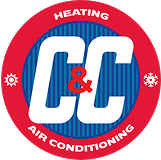Everyone wants a home that smells fresh and clean. But scientific research in recent years has revealed that there is much more to indoor air quality than pleasant or bad smells. In fact, the EPA warns that indoor air pollution is among the top health risks facing Americans. We often think of our homes as a sanctuary from the threats that lurk beyond it, but indoor pollutants are often more concentrated due to less ventilation. That often results in indoor levels of pollutants that are three to five times higher than the outdoor pollution levels. It is, therefore, imperative that we monitor air pollution in our homes and take steps to manage it so that we breathe easier and are less prone to various illnesses.
Professional Testing vs. DIY Testing and Monitors
Do-it-yourself testing and monitoring can be an effective way to identify potential IAQ problems earlier than you otherwise would but should not take the place of a professional audit. Consider radon testing. There are inexpensive test kits available, but false negatives and false positives are common. A radon test performed by an expert using the latest detection equipment available gives you peace of mind. Likewise, a home IAQ monitor can help identify potential problem areas. Their use is limited, and the tech often becomes outmoded in the time span in which you should schedule your next professional test.
Routine IAQ Testing Every Three to Five Years
The general industry advice is that you have a professional indoor air quality assessment performed every three to five years. This is an excellent time in which to also have your ventilation system assessed and perhaps to have a home energy audit performed as well. If you have never had an IAQ test conducted, then the answer to whether you need one is a resounding yes. A professional assessment will hopefully provide you peace of mind or, at the very least, give you the information needed to improve air quality in your home. As for whether you should test every three years or five, it depends. If you schedule an audit and your home passes with flying colors, five years should be adequate. But if your home has IAQ issues or you live in a high-pollution area, four or even three years may be better.
Radon Testing Every Two Years
Radon is a radioactive gas that occurs naturally. It can seep up from the ground into your home. It is colorless and odorless, and the absence of radon now does not guarantee that it will not be present in the future. The EPA recommends retesting every two years as part of your home maintenance, which means that this particular test should be conducted at a higher rate than other IAQ testing. It is also worth noting that a professional tester may recommend that you test again next year. This often occurs when there are radon levels present but below the threshold that is considered a health risk.
Pay Attention to Dust in the Home and How Well You Control It
Dust in the home is a fact of life. It is impossible to avoid entirely, and it plays an integral role in indoor air pollution. The reason for this is that dust effectively acts as a sponge that soaks up pollutants and reemits them into your home over time for a much longer period than would otherwise be possible. Frequent ceiling-to-floor dusting followed by vacuuming with a HEPA filter is essential to maintaining strong indoor air quality. If you notice an increase in dust in the home, that is often an indication of a problem, such as an issue with the central heating or air conditioning systems or the ductwork itself.
Mold Testing in Response to Water Damage
If you experience any water damage at all, including a minor leak, you should schedule a professional test for mold in the home. Mold colonies can develop very quickly in ideal conditions. Caught early, remediation is often a rather fast and affordable process. Left untreated, a mold problem can undermine your indoor air quality substantially and become a very expensive problem to correct.
Be Aware of Humidity Levels in the Home
Many people are not aware of the role humidity plays in indoor air quality. High humidity is particularly concerning. While your air conditioner does remove moisture in the process of cooling your home, it may not be able to remove enough on the most humid days. That results in spending more on cooling and your air conditioner working harder but also more moisture in the home. That moisture can lead to mold and other problems. Dry air is an issue as well and is often a byproduct of heating your home. Low humidity makes odors more pronounced and allows viruses and bacteria to thrive.
Take Note of Strange Odors in Your Home
Natural fragrances are fine if you enjoy them, but deodorizers, scented oils and so forth should not be necessary to make your home smell fresh and clean. That can be achieved through proper dust control and adequate ventilation. If you do notice unpleasant odors, despite good dust control and ventilation, then that is an indication that you have high pollutant levels in the home. If you cannot identify the source on your own, a professional test should help you uncover the underlying issues.
Monitor Outdoor Pollution Levels
Monitor the outdoor pollution levels in your neighborhood. Make it a point to know what is usual and also have the context of what is considered a risk or even dangerous. Be mindful that the air in your home can never be less polluted than the air outside it without some form of air filtration or purification. If you are concerned about outdoor pollution levels, an IAQ audit is a good time to discuss that with your HVAC professional and explore the various options available for your home.
Keep an Eye on Kitchen Ventilation
Many homeowners are unaware that the kitchen is the leading cause of air pollution in the home. The general recommendation is that you enable your kitchen exhaust system 10-15 minutes prior to cooking and that you keep it on 10-15 minutes beyond the last appliance being turned off. This will all but eliminate pollution from your kitchen, but be mindful that it relies on you having an adequate exhaust system. It should be cleaned regularly and inspected whenever you have your home ventilation assessed.
Your Indoor Air Quality Experts in Southeastern Michigan
C & C Heating and Air Conditioning in Roseville has provided heating and cooling services to homeowners in Southeastern Michigan since 1948. That means that we have more than seven decades of experience helping people in this region not only stay comfortable throughout the year but maintain the best indoor air quality possible in their homes. Our team performs indoor air quality testing, cleans ductwork and installs air filtration systems, UV lights and humidifiers. You can also count on us for the installation, maintenance and repair of all manner of residential heating and cooling systems. Call us today, or contact us online to schedule an appointment or with any questions that you may have.





